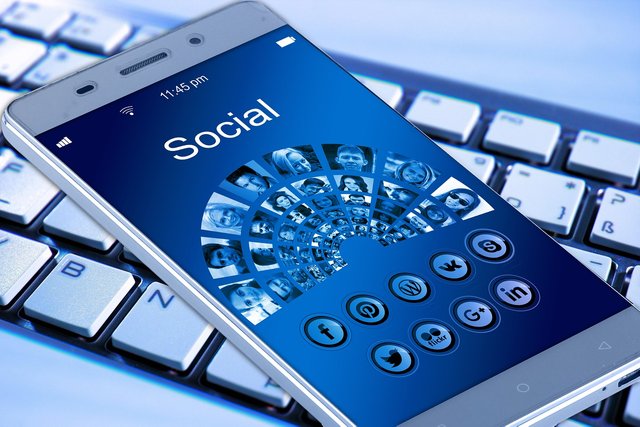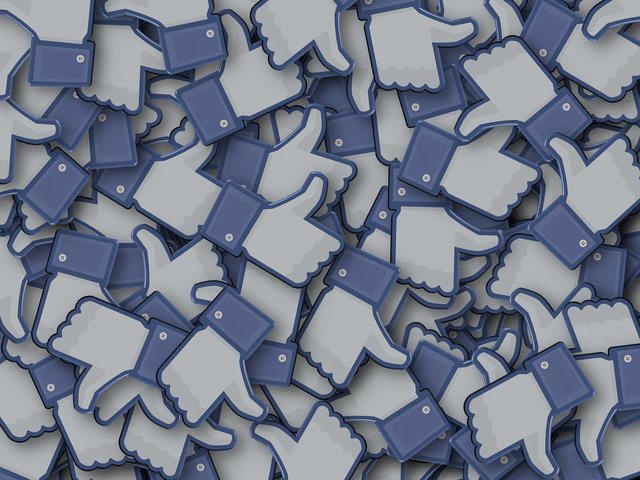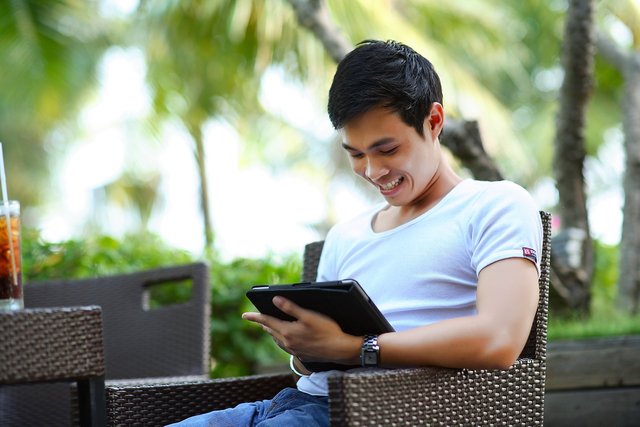Does Social Media Make Us Lonely? (Psychology Essay)
In the current technological age, we live in socialization is becoming easier and more accessible over the internet. We are able to maintain constant contact with friends that live on the other side of the planet as if we see them every day. Social media has created a faceless social bond between us and our friends. Although, many social psychology experts question if social media is actually making us less social and even lonely.
 Source: Http://www.pixabay.com
Source: Http://www.pixabay.comIn this study, one hundred and two participants were selected from a pool of undergraduates at the University of Arizona. Every participant was selected based on the fact that they use Facebook. Sixteen of the participants' results were excluded for failing to follow directions or complete the task. Thirty seven participants were randomly assigned to the experimental group and forty-nine randomly assigned to the control group. Fifty-three of the participants were female and seventy-seven were between eighteen and twenty-two years old.
 Source: Http://www.pixabay.com
Source: Http://www.pixabay.comAfter the week was over, all participants were emailed the original measure surveys to complete again on loneliness. An additional survey measure was presented on the level of social connection using a 5-point Likert-type scale (Cacioppo, Hawkley, Kalil, Hughes, Waite & Thisted, 2008). The researchers accessed participants’ Facebook profiles from the ‘‘Research Profile’’ and saved the profile pages. The information from the saved profile pages included “number of friends, number of status updates during the intervention period, and number of responses received per status update during baseline as well as during the intervention period”. Lastly, the participants were invited to the lab for the debriefing. Their profiles were deleted from the friend's list of the ‘‘Research Profile”.
 Source: Http://www.pixabay.com
Source: Http://www.pixabay.comThe combined scores of the various loneliness measures showed that the control group did not change scores in a week. The experimental group showed lower scores of loneliness after one week, but the difference was not considered statistically significant when including a margin of error. The feelings of connectives measure at the end of the week showed the experimental group had higher scores than the control group, in statistically significantly higher numbers. After analysis of the saved profiles, participants that received more feedback from their status (likes and comments), showed a significant lower level of loneliness. The general hypothesis was refuted, but the secondary two hypotheses were proven correct.
 Source: Http://www.pixabay.com
Source: Http://www.pixabay.comReferences
Andresen, E. M., Malmgren, J. A., Carter,W. B., & Patrick, D. L. (1994). Screening for depression in well older adults: Evaluation of a short form of the CES-D (Center for Epidemiologic Studies Depression Scale). American Journal of Preventive Medicine, 10, 77–84.
Cacioppo, J. T., Hawkley, L. C., Kalil, A., Hughes, M. E., Waite, L. J., & Thisted, R. A. (2008). Happiness and the invisible thread of social connection: The Chicago health, aging, and social relations study. In M. Eid & R. J. Larsen (Eds.), The science of subjective well-being (pp. 195– 219). New York, NY: The Guilford Press.
Deters, F. g., & Mehl, M. R. (2015). Does Posting Facebook Status Updates Increase or Decrease Loneliness? ; An Online Social Networking Experiment.
Ellison, N. B., Steinfield, C., & Lampe, C. (2007). The benefits of Facebook ‘‘friends’’: Social capital and college students’ use of online social network sites. Journal of Computer-Mediated Communication, 12, 1143–1168.
Lyubomirsky, S., & Lepper, H. (1999). A measure of subjective happiness: Preliminary reliability and construct validation. Social Indicators Research, 46, 137–155.
Russell, D., Peplau, L. A., & Ferguson, M. L. (1978). Developing a measure of loneliness. Journal of Personality Assessment, 42, 290–294.
Note from Author
Thank you so much Steemit community for following me and reading my articles! I really appreciate the bump from @curie , @originalworks , and #steemstem ! I hope my articles further questions and debate, as well as entertain and educate. Thanks again Steemians.
If you like this, check out my other current posts!
- What is Industrial-Organizational Psychology
- Is Addiction a Disease? Debate Essay
- Bias and Ethics in Research Statistics
Check out my Store where I sell Magic the Gathering / Yu-Gi-Oh! / Pokemon / Retro Games for Steem! (any cryptocurrency accepted!) @cabalcoffers
Or consider giving a small tip in crypto :)
 DogeCoin - DF8TAzAzV7xhvvS6Hr3Zg9Se12PNQrk6s2
DogeCoin - DF8TAzAzV7xhvvS6Hr3Zg9Se12PNQrk6s2


Whether social media makes you feel lonely depends on your life situation/ condition or on the environment you live in. I think, if you are a happy person, have all your needs fulfilled, are successful financially, social media will not affect your mood, but if you are already depressed in your life, then facebook or twitter will make you further depressed if you see others are in better condition. Same is the case in real life.
You got a 60.08% Upvote and Resteem from @singing.beauty, as well as upvotes from our curation trail followers!
If you are looking to earn a passive no hassle return on your Steem Power, delegate your SP to @singing.beauty by clicking on one of the ready to delegate links:
50SP | 100SP | 250SP | 500SP | 1000SP | 5000SP | Custom Amount
You will earn 80% of the voting service's earnings based on your delegated SP's prorated share of the service's SP pool daily! That is up to 38.5% APR! You can also undelegate at anytime.
We are also a very profitable curation trail leader on https://steemauto.com/. Follow @singing.beauty today and earn more on curation rewards!
Great share, I would assume that people would be less lonely with social media since they have virtual people to talk to and it's easier to communicate with people online obviously than in person. @ianmcg
This post has received a 0.26 % upvote from @drotto thanks to: @ianmcg.
This post has received a 48.39 % upvote from @steemdiffuser thanks to: @ianmcg.
Bids above 0.1 SBD may get additional upvotes from our trail members.
Get Upvotes, Join Our Trail, or Delegate Some SP